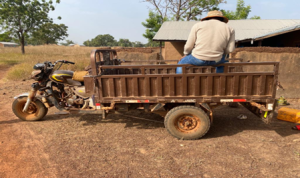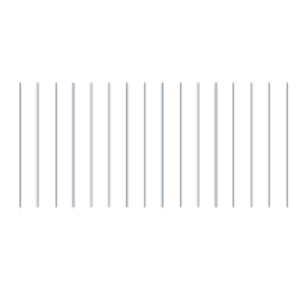Abdul Zanya Salifu, University of Calgary
Olivier Walther, University of Florida
Eliasu M Tanko, independent journalist
20 December 2023

In recent years, West African jihadist groups have expanded from the Central Sahel to the coastal countries of the Gulf of Guinea. While primarily driven by religious motivations, these groups are increasingly seeking to control informal trade by kidnapping and killing local traders. These worrying incidents are particularly numerous in border regions, where informal economic exchanges have long connected markets and communities. As this interview conducted with a former captive of a militant group in November 2023 reveals, jihadists are increasingly active in the region between Burkina Faso and Ghana.
Kidnapped on his way across the border
In northeastern Ghana, jihadists explicitly target local traders such as Mr Sana (not his real name), a Ghanaian national who routinely transports foodstuff to southern Burkina Faso. In May 2023, according to an interview conducted by the authors, Mr Sana was kidnapped by a militant group on his way across the border. As he recalls, “On that fateful day I set off from Bawku in the afternoon carrying tubers of yam and shea seeds to Bittou… The first bridge between Mogande and Nohao was where I spotted men in Burkinabe military and police uniforms”.
Mr Sana was initially not surprised to see uniformed officers blocking the road to the market. In northern Ghana, state authorities are a familiar presence along major roads, where they extract bribes from traders and travelers. “I wasn’t scared”, said Mr Sana, “because I know that even if there are any issues at all I would be asked to pay around CFA 1 000-2 000 [USD 2-4] and they will let me go. As I approached them however, I realised it was… jihadists who wore state security uniforms… They stopped me and asked me to come down and sit on the ground.”
Border regions as safe havens
Mr Sana was led to an undisclosed location, where he joined a large group of captives, with whom he spent 12 days, blindfolded and constantly fearing for his life. During his captivity, Mr Sana realised that the militants were attempting to control informal trade by targeting traders involved in cross-border activities. He recalls how the militants carefully tried to assess the nationality of the traders they had kidnapped in various places. Since militant groups mainly conduct their violent activities on the Burkinabe side of the border, they need to avoid killing Ghanaian nationals for fear of losing their safe haven in northern Ghana.
As Mr Sana explains, “At some point our captors asked us to provide identity cards to show proof of our nationalities. I was lucky to have my Ghana card with me, but many others did not. So when I gave mine to them they looked at it carefully and then asked which part of Ghana I came from.” Mr. Sana was able to provide information about his region of origin, which probably saved his life. He was the only hostage released from his group and realised that a “number of captives were taken out to be slaughtered and thrown into a mass grave”.
After nearly two weeks in the bush, a militant commander told Mr Sana that he would be released because he had successfully proved his nationality: “He said they don’t want Ghanaians because they don’t have any problem with the people of Ghana”. The militants were explicit about why so many traders were kidnapped in this region. Mr Sana recalls that they “mentioned that they want to prevent shipment of goods and foodstuff into Burkina Faso. They warned that any Ghanaian who brings food into Burkina Faso will be killed when captured.”
Border regions as places of worship
The militants also insisted that Mr Sana worship Allah and “practice Islam properly” when he gets back home. Mr Sana was liberated without ransom and his captors made it very clear that business and religion were intimately connected. The jihadists told Mr Sana and other captives to “take our five daily prayers seriously and be very obedient and conscious of Allah… They also told us to implement a certain dress code, such as men wearing hanging trousers and long-sleeved shirts, while women should cover their complete bodies except wrist and face.” The militants further insisted on being referred to as “El Hadji”, an honorific title given to a Muslim person who has successfully completed the Islamic pilgrimage to Mecca in Saudi Arabia.
Mr Sana’s story also suggests that the Ghanaian side of the border offers more attractive conditions to local militants in search of religious activities than the Burkinabe side. After asking him about his hometown of Bawku, the militants “mentioned that they usually come there to observe Friday (Jumah) prayers because the imams don’t preach against or curse them. So they see no reason why they should harm anyone from Bawku”.
Like a fish in the sea
Insurgents usually expand their territorial control by using their local knowledge of the terrain to conceal their operations against government forces. Obviously, the jihadists who kidnapped Mr Sana seemed to know the Bawku region very well, even if they don’t perpetrate violent events there. Mr Sana remembers that his captors were perfectly at ease in the border region and very well equipped: “They had almost everything a state military force had: armour vehicles, Toyota Hilux trucks, sandbags, tents, motorbikes and much more”. In the camp where Mr Sana was kept hostage, the jihadists had seized several trucks and tricycles loaded with foodstuff from local traders. They also had a medical team, solar power and walkie-talkies.
The militants’ intimate knowledge of the local context may also be linked to their involvement in informal and illicit trade in Ghana. Mr Sana acknowledged seeing hundreds of cattle in the camp while in captivity. Many of these rustled cattle are sold in popular markets in eastern Ghana, such as Gbentiri, Gusheigu and Buipe, either directly or through Ghanaian patrons.
Multiple modes of fighter recruitment
Violent extremist groups have different ways of recruiting fighters into their ranks. Mr Sana’s experience suggests that new fighters are likely to join when their active family member gets killed by state forces or the Volunteers for the Defense of the Homeland (VDP), a local self-defence group. “They told us that they have a huge number of reserve fighters willing to join and their numbers will never diminish so the fight is not stopping anytime soon.” Across the Sahel where violent militancy is prevalent, many youths join violent extremist groups over killings or perceived human rights abuses of their family members. This is particularly relevant for Burkina Faso, where an open armed conflict is taking place.
The main incentives for the recruitment of fighters from Ghana are far less documented. Mr Sana’s experience suggests that perhaps religious motivations play a role. He recalls that the militants tried to convince their captives to join them in fighting the Burkinabe state. To increase their chances of being safely released, Mr Sana and the other captives “told them that its not like we don’t admire their cause, but we have left our parents, wives and kids at home and they don’t know the situation we are in. So we cannot join the cause at this moment. We begged them instead to release us to go home and be with our families.” Mr Sana further noted that they could have been coerced by the militants to join their ranks but that the militants eventually decided to release some of them as a warning to the other traders.
Finally released
Mr Sana was escorted to the outskirts of Mogande in Burkina Faso by a group of militants on a motorbike. “As we approached Mogande and people saw us coming, they began running helter-skelter for their lives.” He was shocked to see that “even state security forces and VDP took to their heels as we approached Mogande”. Before returning to their camp, the militants told Mr Sana that he should never step foot in Burkina Faso again “until peace is restored” and that he should “caution all transporters to desist from coming here with goods”. Mr Sana was so stunned by his kidnapping that he couldn’t remember his way back to Bawku. “I was just driving my tricycle without any knowledge of where I was heading to.”

